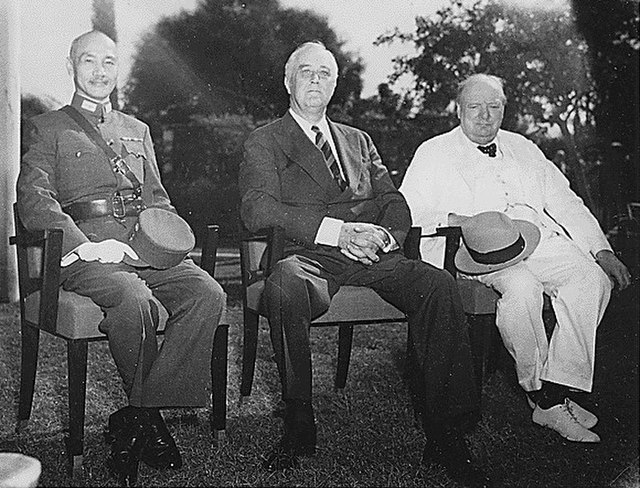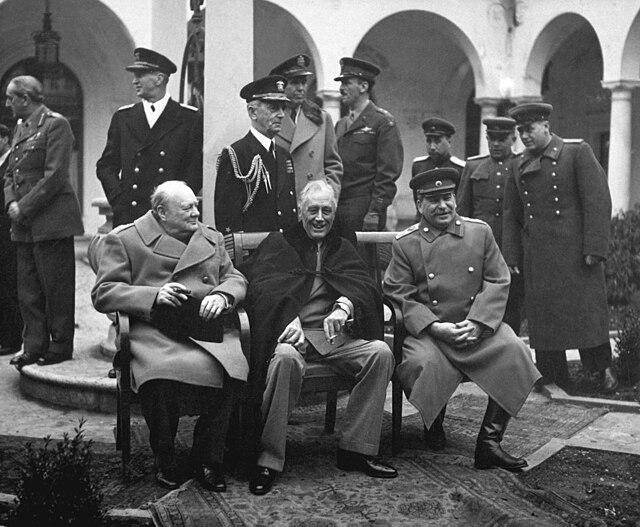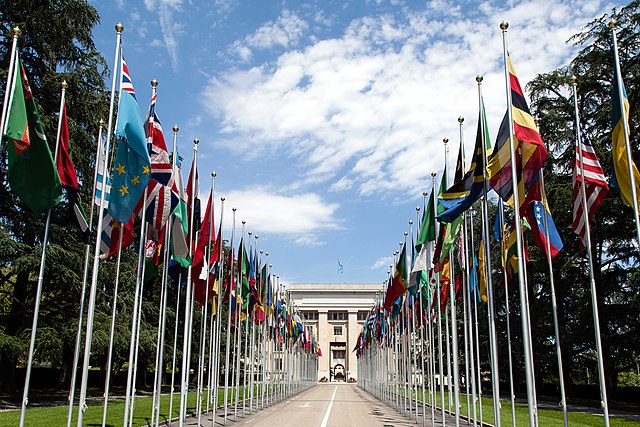United Nations Security Council
The United Nations Security Council (UNSC) is one of the six principal organs of the United Nations (UN) and is charged with ensuring international peace and security, recommending the admission of new UN members to the General Assembly, and approving any changes to the UN Charter. Its powers as outlined in the United Nations Charter include establishing peacekeeping operations, enacting international sanctions, and authorizing military action. The UNSC is the only UN body with authority to issue resolutions that are binding on member states.
UN Security Council Chamber in New York City
Chiang Kai-shek, Franklin D. Roosevelt and Winston Churchill met at the Cairo Conference in 1943 during World War II.
British Prime Minister Winston Churchill, US President Franklin D. Roosevelt and Soviet general secretary Joseph Stalin at the Yalta Conference, February 1945
Church House in London where the first Security Council Meeting took place on 17 January 1946
The United Nations System consists of the United Nations' six principal bodies, the Specialized Agencies and related organizations. The UN System includes subsidiary bodies such as the separately administered funds and programmes, research and training institutes, and other subsidiary entities. Some of these organizations predate the founding of the United Nations in 1945 and were inherited after the dissolution of the League of Nations.
The United Nations Office at Geneva (Switzerland) is the second biggest UN centre, after the United Nations Headquarters (New York City).
Image: UN General Assembly hall
Image: United Nations Headquarters in New York City, view from Roosevelt Island
Image: International Court of Justice HQ 2006








